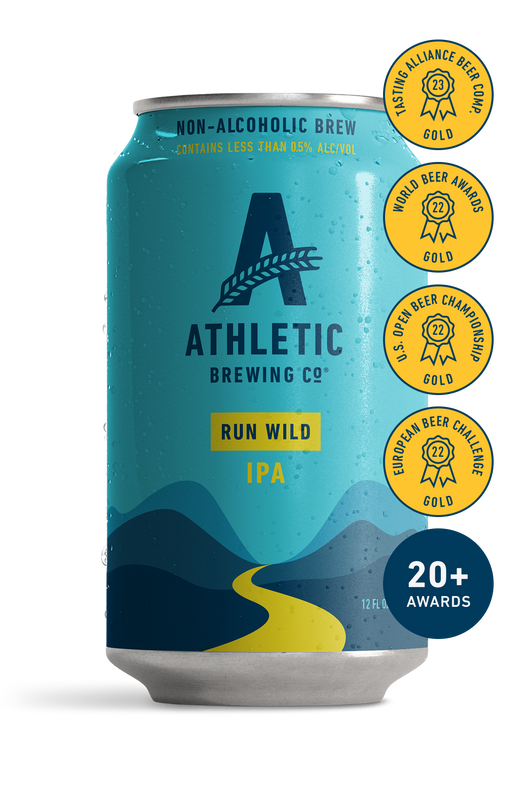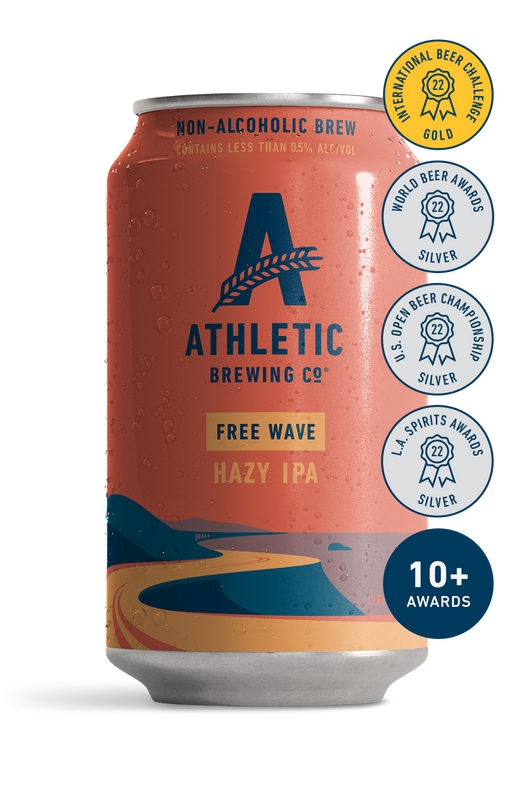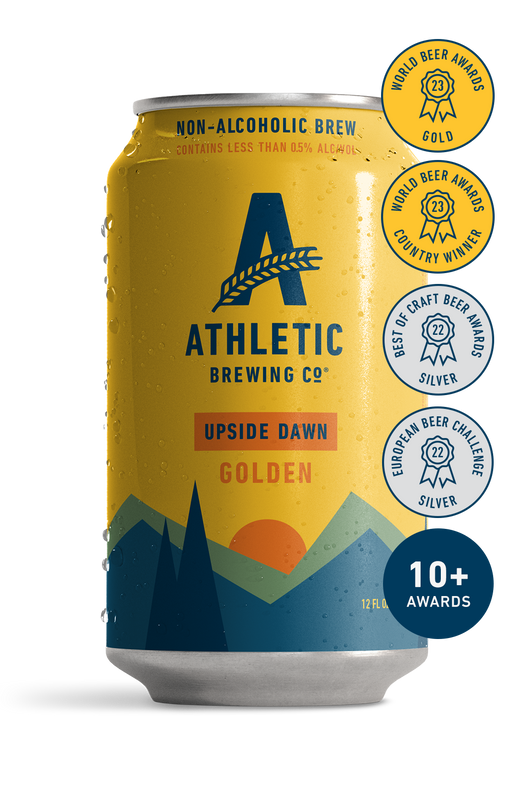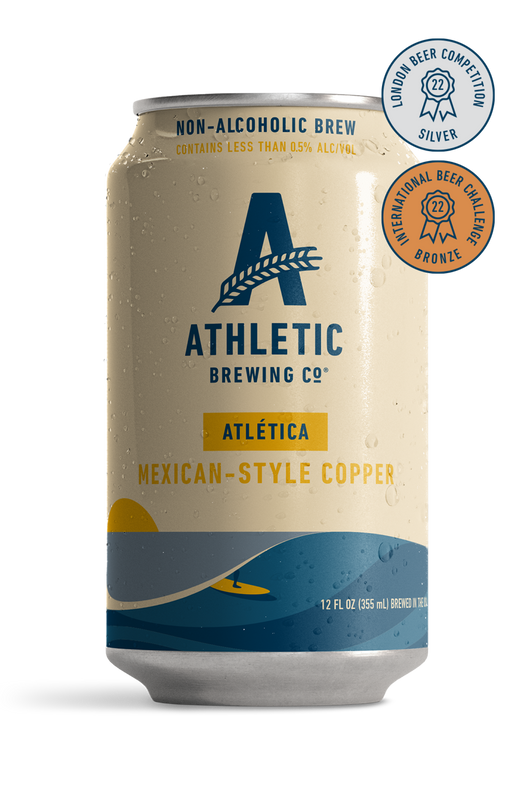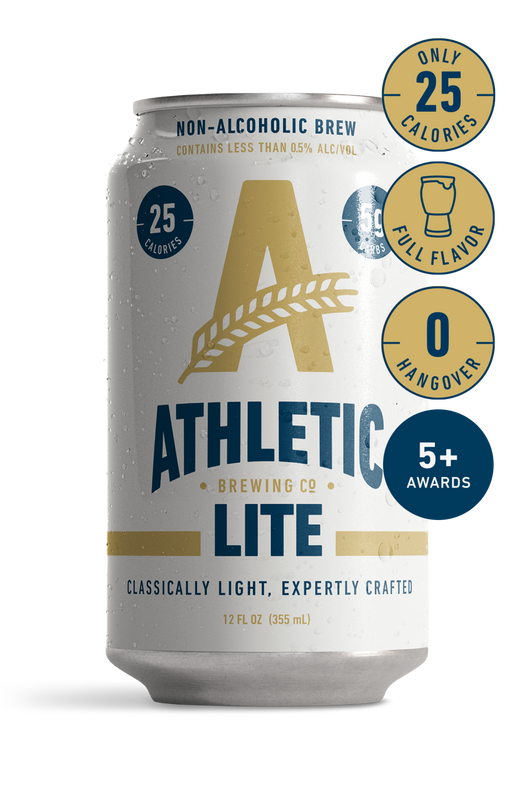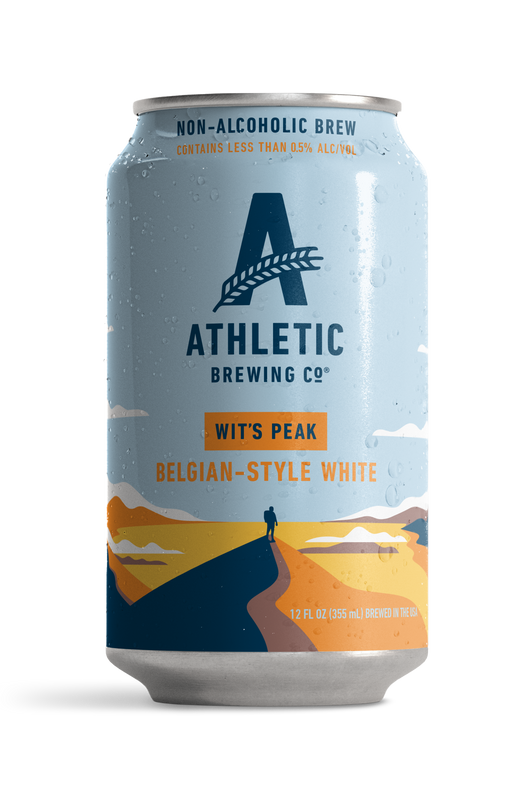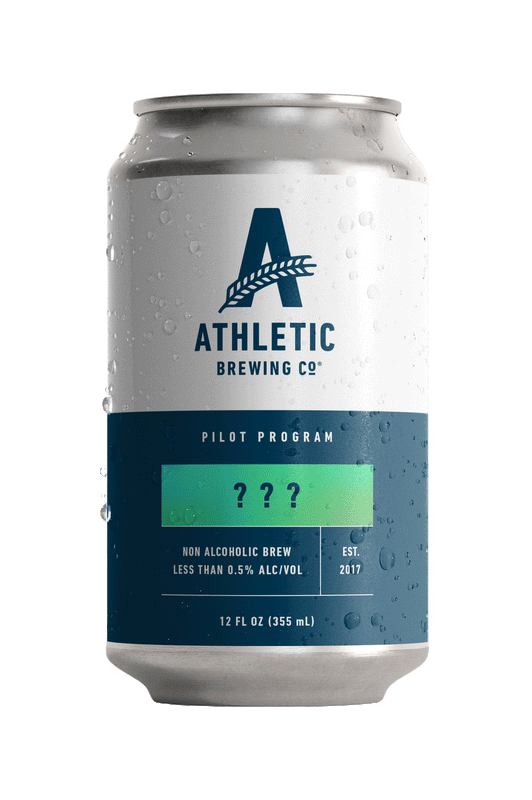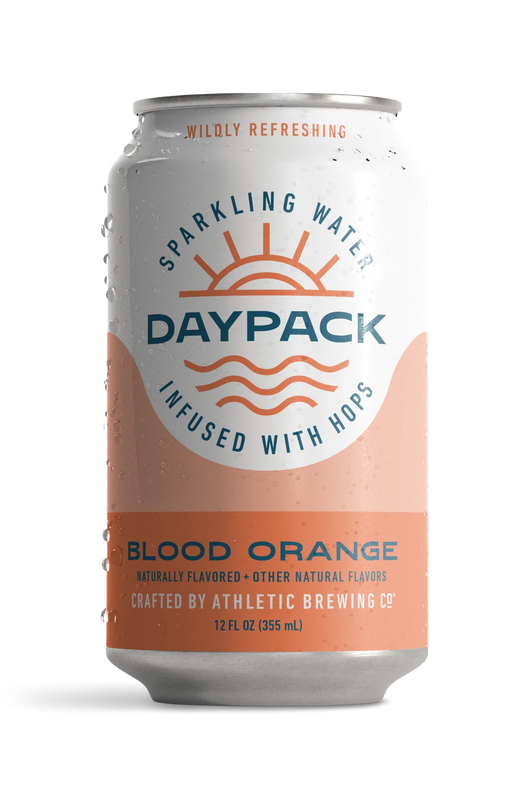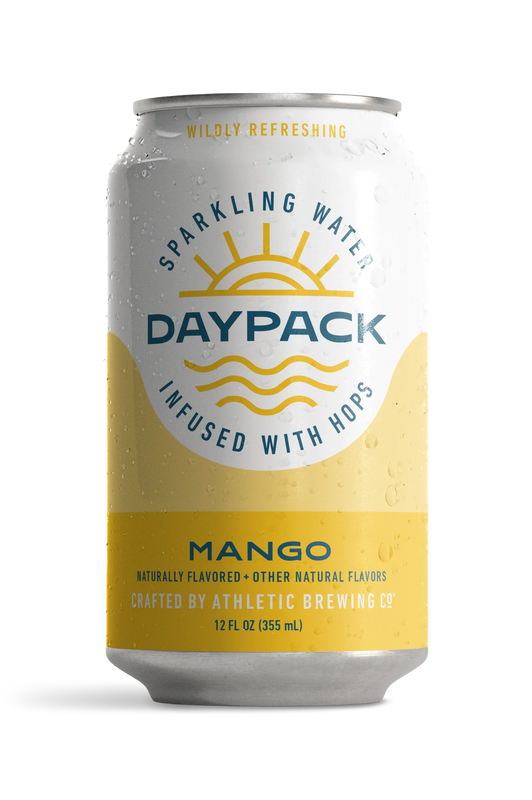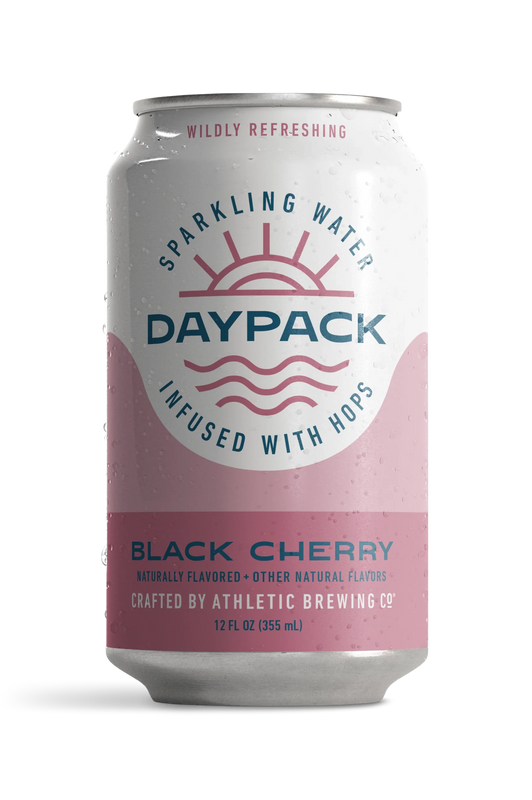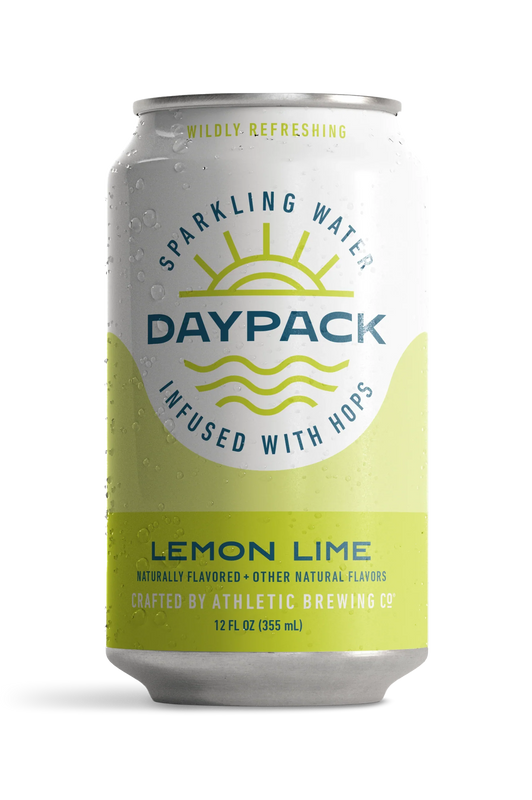Dave Scarpello
Age: 54
Location: Philadelphia, PA
How long have you been an ambassador? About 2 years
Favorite beer? Cerveza Athletica
Instagram: @davescarpello
Dave Scarpello knows pain.
Not just the typical pain that comes after completing a half or full marathon, though he knows that well, too.
No -- this is the type of pain that comes after hearing the words, “You’ll never walk again,” and then knowing darn well that you are going to.And walk he did. In fact, he ran. A 5K. Then a 10K. A half marathon. Then the full New York City Marathon -- with a broken toe.
Six marathons total to date. And he’s not stopping there. He’s currently training for one later this year and has his eyes on a 31-mile ultra run.Yeah, I’d say Dave is pretty unstoppable.
He’s also incredibly humble and inspiring -- always one to lift up those around him -- and he’s a strong advocate for mental health. He’s put his story out there countless times for anyone willing to listen, or for those who unwillingly stumble across it, in hopes that it will help others.
“When I first did that 5K, and then I started running a little bit more, my whole mindset was like, it would help me physically. I had no clue how beneficial it was going to be to me mentally. I suffer from panic attacks, and now instead of reaching for a prescription, or a beer to calm my nerves, I'll just throw on my shoes and head out the door and just start running. Once I start getting in motion, it knocks it out. For me, running is the best medicine.”
Along with being an Athletic Brewing Ambassador, Dave is also an ambassador for Still I Run, a community of runners and mental health warriors that promote the benefits of running for mental health and work to defeat the stigma around mental illness.
Read on to learn more about Dave and his incredible story of strength and resilience.
(Note from the editor: There are a lot of details to Dave’s story that have been left out of this interview, but we encourage you to read more by visiting this article from the Chestnut Hill Local and listening to this week's Without Compromise podcast episode!)

Tell me a little bit about your athletic background, what activities do you enjoy doing? I know you have a pretty unique story you have shared about getting hit by a drunk driver and being told you’ll never walk again, but you overcame that to run the NYC marathon in 2016 …
When I was young, everything was all about sports. I played football and baseball growing up. In high school, Ii was a captain of the baseball and soccer team. I ran track, played J-V basketball. My high school didn't have a football team, so I ended up playing soccer. Then I ended up getting a bunch of soccer scholarships and went to Temple University on a soccer scholarship, but I tore my knee before freshman year, so I was done. I never actually played. But still it was cool that I got to the point that I got a Division 1 soccer scholarship, so that counts for something. Once I got in college and I wasn't playing sports, I wasn’t as active. I played pickup basketball, mostly.
At age 26, I was assaulted during an armed robbery. I ended up needing back surgery 2 weeks after the assault, because [they] had pulled my legs in different directions, and so they popped my lower disc. I had back surgery in ’92, and then I had to go back and have the same procedure done in ’94, and then I had to have a third back surgery in ’97 to remove excess scar tissue. After that, they considered me partially disabled. I still worked, but I dealt with chronic pain.
Then in 2003, I was stopped at a red light, waiting for it to change, and I got hit from behind by a drunk driver. I don’t remember the accident. I was at the light, and then I woke up, and I was at the trauma center. They told me pretty quickly the injuries were bad and you’re not gonna be able to walk. I was like, “No, I’m walking out of here.”I was in physical therapy for a while, but I did walk out of the hospital with one of those walkers. Then they said you’ll never walk without a walker, then they said you’ll never walk without a cane, then they said you’ll never walk without a heavy limp, and you know, it just, I believed a lot of that, because they’re the doctors, they’re telling you, but why don’t I try to push it anyway?
I started aqua jogging at the YMCA because that didn’t put any pressure on the back. Then I found out I could walk farther and farther, and that’s what I did for maybe 3 years after I lost weight and got back in shape -- I just walked everywhere. The local YMCA that I was a member at was having a 5K in the park, and I thought: How crazy would that be if I went from a doctor telling me I was never gonna walk again to doing a 5K. I hadn’t run since high school, and I was a sprinter, so I didn’t know about 5Ks and distance running.I ended up running the whole 5K. It was crazy because I didn't expect it, but when I saw the finish line, like this switch just flipped in my head, and I went right back to being in high school and doing the 100 meter, and when you’re at meter 80 and you just open up the tanks, I instinctively did that. I broke down crying because I ran a 5K. I felt so much adrenaline and dopamine. I was so excited. I was like I need to do this again, that can’t just be a one time feeling.
Two weeks later, I found another local 5K, and I did that. And then it just progressed. I entered a 10K, which seemed like so far beyond the realm of possibility, but I did. Then I worked up and did a 10-miler, then I did the half marathon, and I remember all my running friends, after I finished that first half marathon, they were like, “Marathon is next.” I’m like, with my body, injuries and age, that was the limit, there was no way my body could do [a half marathon], and then do that all over again and do another 13 miles. But then I did.I signed up for the Philadelphia marathon in 2016. I also signed up for the lottery to get into the New York City Marathon, because I thought how amazing it would be. I really just did it on a whim, and I got picked. I was like oh my God, I had to read it twice. People were like what are you gonna do about Philly, that’s 2 weeks later. I was like I paid for them, I'm running ‘em.
I ended up tripping on something running in the park and I broke my big toe on my left foot. When I went to the ER, I was like, “You gotta tell me what to do; I'm running the New York City marathon in 2 weeks. It’s my first marathon.” They were like well you can try again next year. I was like, “No you don’t understand, I'm in the lottery, I'm never going to qualify time-wise, I’m not an elite runner. Off the record, what can I do?” They were like, “It’s going to be really painful, but basically you just duct tape your toe to the toe next to it for support.”If there’s any upside to having chronic pain and surgeries and all, I have a really high pain tolerance. I was able to push through it.
For 26 miles? … how long did that take?
Five hours and 38 minutes. I got to mile 20, and that’s like when you hit the wall, and then I lost feeling below my waist. I literally was so spent I couldn't feel anything from the waist below. Everything just kept moving. Something else took over. My body kept moving and I don't know how it did.

What made you decide to apply to become an ABC ambassador?
I just love beer! My whole life, I was a regular beer drinker. When you’re young, you’re trying to get drunk, you know. And then when I got older, people were introducing me to different beers, and I was like -- wow, I really like beer. I never had a drinking problem, that’s what’s so weird, because when people find out that I don’t drink -- “Oh I didn’t know you were sober …” I’m like, “No, I stopped drinking, trying to be a better athlete.”I got to the point where I wanted to PR for the marathon, and I just really don’t need the alcohol. I cut it out of my diet. But then that means I’ll have to go back to drinking [traditional NA beers]. They were just so terrible. It’s better than not having beer, but it’s not great. So I went online, Googled non-alcoholic beer, and I thought maybe there’s been advances since the time I last tried them.
When I had the first Athletic, it was like rainbows just went off when I tasted it. I don't know who you are, mighty creator of this beautiful option, but this is life-changing. Because after a long run, I would just love a beer to replenish you. Now I can still do that and get the benefits without the alcohol involved. That’s perfect. I tried a bunch of different brands, but Athletic was far and away my favorite. And I’m not just saying that because I ended up as an ambassador. Now I drink it all the time. When I said I cut everything out, I haven’t had a drink since, and I don’t miss it. The only thing I really missed was the taste.
In what ways has the Ambassador program helped you grow or develop in your personal, professional and/or athletic careers?
Number one: My athletic career -- because now that I eliminated alcohol, I feel lighter when I run, and again it’s not like I would get drunk and then run, but you know, having it in your system and trying to run the morning after hanging out on a Friday night, I noticed that I can run longer, I have less recovery time between runs, less muscle soreness. For me, it’s probably really specific to my conditions -- I get a lot of muscle cramps, but it’s not from dehydration, it’s from nerve damage. I would get these bad Charlie horse cramps, and then I realized when I cut out alcohol they decreased like 90%. So as an athlete, it’s really improved me.
What do you think about the Athletic Ambassador community? How has that helped you?
I feel like they’re my teammates. I feel like we're on this one big team. I love seeing the diversity of the people and how we’re spread out all across the country. I tell people [I’m an ambassador], and they're like, “Oh you must be one their top athletes, you’re always posting.” I’m like, no they have pro beach volleyball players, they have some high-quality, serious cyclists. But I like that Athletic isn’t just strictly elite athletes. It's normal people like me that get to represent them.

What are some of your favorite moments or highlights of your athletic pursuits?
The 2016 NYC marathon was my first full, and that was definitely, up to that point, the greatest day of my life. When I crossed the finish line, my knees buckled, I physically fell to the ground, and I cried like a baby. I was like, “Oh my God, I’m crying in front of all these people,” but when I lifted my head and looked around, there were so many other runners that were doing the same thing. So that was definitely the highlight. The Marine Corps marathon is the hardest race I’ve ever done, but New York was the highlight.
Tell me a little bit more about your Italian heritage. I know that is something you’re proud of. How do you integrate that into your running, your races, your training … how do you represent that, and what does that mean to you?
It’s much better for Italians now, but when they first started coming over [to America], they faced a lot of discrimination, and prejudice, and racism, and it was really bad. I’ve always had that pride, that’s been instilled into me: No matter what anyone says, you can do whatever you want. I guess it's just a part of how I was raised. I guess it’s just that work ethic that was drilled into us that helped translate athletically. My father, my grandfather would say, “You have to outwork everybody. You have to do more to be equal.” That mindset -- it was the same thing with sports. I really had to work and put a lot into it.
What are your goals for 2021 and beyond?
I’m doing the Delaware marathon in April (the race has since been tentatively rescheduled to June because of COVID-19). The ultra is kind of on hold with COVID. COVID has changed my goals and expectations because we all lost a full year of in-person racing. My actual last in-person race was the 2019 Philadelphia marathon. My goal for 2020 was to try to break 5 hours in a full. Now I’m a year older … I would still like to do it, but honestly at this point, I’m so excited that we reached the point where I can just have another in-person race. I don’t think I’m gonna be pushing as hard for the time. I just want to finish it and experience it and take it all in. I think in that way COVID has made me more appreciative of race day. Who would’ve thought that race days would ever be taken away from us?
If you could choose one event as the dream event, what would that be?
Boston Marathon.
Why that one in particular?
Just because of the prestige of it. The fact that it’s one of the world majors. I ran New York. And even though I'm from Philly, I'm a huge, lifelong Boston Red Sox fan, so I'd love to run the Boston marathon wearing head-to-toe Red Sox. [Dave wanted to let readers know that the Red Sox are his favorite American League team, and the Phillies are his favorite National League team. “My Philly people would kill me if I didn't mention the Phillies!”]

What advice can you give to people who are maybe just starting out, or really looking to get more active, or really overcome an obstacle they have, since you found a way to make it happen?
I think patience is the most important, and it's the hardest. Because when I’m telling people my story, [I go] from getting physically assaulted in ’92 to now I run 6 marathons. I can get from point A to point B in the conversation in 5 to 10 minutes, but in reality, that was decades. It took a really long time; there were a lot of struggles. For me, the most important thing is -- if you believe you can do something, or you want to give it a try, why not, because the worst thing that can happen is it doesn’t happen, but at least you get some satisfaction that you tried. The most important opinion is your own, because nobody else knows your body like you do. And I’m not saying to be an idiot and go against medical advice. But if I would’ve listened to everything the doctors told me, I wouldn't have tried to keep pushing. If I believed them when they said I was never gonna walk again, I could’ve said, OK, I’’m never gonna walk again. You have to play an active part. The doctors, I don’t work for them, they work for me. We’re kind of partners. I don’t mean for that to sound cocky, but my input is important too. I’m a really determined person. If I decide I’m going to do something, I’m going to do it. But I have great doctors. I’m not a rebel. They’ll tell me you really shouldn’t do this, and I won’t, and I’ll stop. But I’m lucky that my primary care doctor is also a runner, which is really, really helpful. He’s amazing.
You’ve got to understand that drive, and that will, but if you don’t, then it just kind of seems silly on the outside. They don't get what you feel and what you want. And having someone that’s a runner that understands that is important.
It’s funny how with running, it seems like everything happens so gradually. You wake up, and you realize you’re more and more of a runner. I’ve even become the runner that I used to make fun of. That’s me now.

Tell me more about Still I Run and your advocacy for mental health.
When I first did that 5K, and then I started running a little bit more, my whole mindset was that it would help me physically. I had no clue how beneficial it was gonna be to me mentally. I have depression, I have anxiety, I’ve had suicidal times. Still I Run breaks down the stigma for mental illness. Not everyone’s willing to put themselves out there and admit what would be seen as a deficiency by a lot of people. If all the bad stuff that I've been through and endured can help someone else in their journey, then it makes me feel better. There was a reason for it, that it wasn’t in vain. Not that I want to do any of it again, but it just kind of puts things in perspective. Running has helped me with my PTSD more than any medication that they put me on. I suffer from panic attacks, and now instead of reaching for a prescription, or a beer to calm my nerves, I'll just throw on my shoes and head out the door and just start running. Once I start getting in motion, it knocks it out. For me, running is the best medicine. It’s made me more relaxed. I never have on headphones when I run, partly because of the PTSD. With PTSD, you’re always in a state of hypervigilance. I’ve found that the time when that subsides is when I'm out and moving and running. Running just calms me down. I still have chronic pain every day. I just push through it. It’s a lifelong struggle. Just like anything else, you just have to work at it. Even my non-running friends have noticed that since I became a runner, they’re like, “You’re more relaxed, less likely to get annoyed or angry.” So it really for me, running just didn’t help me lose weight, it literally changed my life completely.
Do you have a favorite rest day activity?
Binging TV shows, and drinking Athletic beer.
What does without compromise mean to you?
Just never giving up, not settling. It’s right in line with my personal mindset. That’s part of the reason why I’m so enthusiastic about Athletic. Their mission and my mindset just seem to be meshed. The fact that they have the Black Lives Matter beer, and I’m a BLM supporter ... to me, I was like: This is amazing! I already love this company, and I loved them initially because I liked the taste of the beer, but then they’re giving back, they’re doing Two for the Trails, the litter cleanup, and with all the racial unrest last summer, Athletic actually put out that statement [in support of the Black Lives Matter movement], I was like, that is freaking amazing! It made me love the company more. I love the culture of the company. We’re on the same page. For them to do all that awesome stuff and care about the community and make the best beer, I couldn’t ask for anything else.
Don’t forget to check out this week’s Without Compromise podcast -- host Mason Gravely will sit down with Dave to talk more about his life, running and being an ambassador.
 50% OFF 1st Subscription Order* →
50% OFF 1st Subscription Order* →
 FREE shipping on orders $50+
FREE shipping on orders $50+


 Your Privacy Choices
Your Privacy Choices




